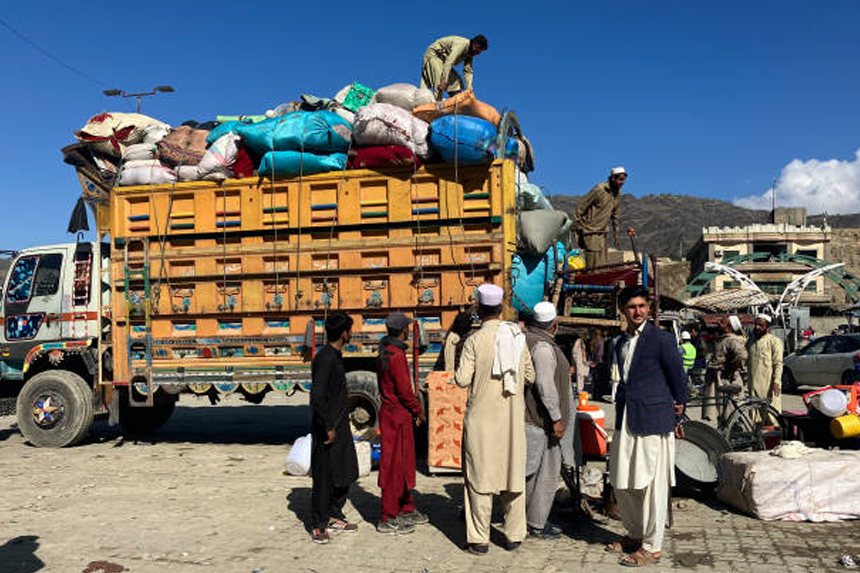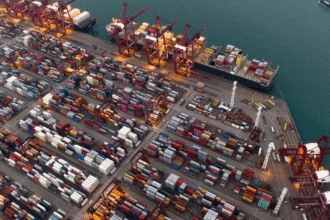Emerging as among the most important humanitarian concerns of recent times is the crisis of Afghan deportation. Widespread worry over Pakistan’s decision to deport a lot of Afghan refugees has come from all throughout the country. Thousands of families are compelled to go back to Afghanistan, so the scenario begs significant issues regarding the reasons behind this crisis and its long-term effects for both nations. This paper will explore the elements driving the Afghan Deportation Crisis, the effects on individuals impacted, and possible remedies to help to resolve this growing crisis.
- The crisis of Afghan deportation:
- Why is the crisis in Afghan deportation developing?
- In what ways does the crisis of Afghan deportation affect refugees?
- What steps are being taken to solve the crisis of Afghan deportation?
- How may the crisis of Afghan deportation be resolved?
- What then lies ahead for the crisis in Afghan deportation?
The crisis of Afghan deportation:
Rapid escalation of the Afghan Deportation Crisis in recent months is attributed to With about 19,500 already returned this month alone, Pakistan has declared that by the end of April over 80,000 Afghan refugees will be deported. Pakistan’s government says it cannot maintain the sizable refugee population, which has severely taxed its public resources. This has spurred a lot of discussion; Pakistan points to economic difficulties and national security as main causes of the expulsion. This represents a horrific homecoming to a nation they might have never known or abandoned decades ago for many Afghans.
The scenario directly results from Pakistan’s attempts to solve security issues as well as financial pressures brought on by a significant number of migrants over several decades. Many of those deported are illegal immigrants, which complicates their mandated trip back to Afghanistan. Both nations are affected by this dilemma; Afghanistan is under pressure to accommodate thousands of returnees in a weak economy while Pakistan suffers great logistical difficulties.
Why is the crisis in Afghan deportation developing?
The rising number of Afghan refugees in Pakistan is the main source of the crisis on deportation from Afghanistan. Over the past four decades, Pakistan has welcomed millions of Afghan refugees; now, around 3.5 million Afghans call the nation home. About half of these migrants are undocumented, which increases the already limited resources and services’ demand on Pakistan.
The choice to turn away these migrants has not been taken in a vacuum. The rising deportation activities in Pakistan are much influenced by security issues for the country. Rising tensions along the border, Pakistan has over years blamed Afghan-based militants for attacking its territory. Frustrated with the Taliban-led Afghan government, Pakistan has charged it of not acting against these insurgents. Although the Taliban refutes these claims, border conflicts between security forces from Afghanistan and Pakistan have escalated, aggravating already challenging circumstances.
Millions of Afghan refugees, according to Pakistan, create continuous national security concerns. Officials of the nation assert that mass deportation is an essential action to preserve public services and keep security inside its borders. Consequently, the Afghan Deportation Crisis has escalated and deportations of Afghan refugees have been more frequent.
In what ways does the crisis of Afghan deportation affect refugees?
Afghan families have been severely emotionally and financially stressed by the Deportation Crisis. Many of the deportees were born and raised in Pakistan, without any connection to Afghanistan, which created a very disturbing circumstances for them. Sayed Rahman, one individual, related his story: “I spent my whole life living in Pakistan. That is where I got married. Right now, what am I meant to do? These feelings capture the hardships experienced by second-generation migrants who have never set foot in their supposed homeland.
For some families, the return to Afghanistan marks a deep dislocation rather than only a trip back to a geographical site. Children who have grown up in Pakistan, gone to school, and started lives suddenly find themselves in a nation politically and economically unstable. Apart from the psychological damage caused by forced relocation, deported families sometimes lack basic amenities including shelter, healthcare, and job. These elements just aggravate the difficulties already experienced by households coping with loss and conflict.
Many of those deported—especially women and children—are worried that living under Taliban control in Afghanistan will be considerably more terrible than it was in Pakistan. For girls, for instance, education is severely limited in Afghanistan; girls beyond the age of twelve are forbidden from enrolling in classes. Families whose children had been attending Pakistani schools—where education was more easily available—had to deal with this hard reality.
What steps are being taken to solve the crisis of Afghan deportation?
Though their reactions have been different, both Pakistan and Afghanistan are working to handle the aftermath from the Afghan Deportation Crisis. High-level negotiations between Pakistani officials and Taliban leaders in Kabul on the humanitarian consequences of the mass deportations have The recent visit of Pakistani Foreign Minister Ishaq Dar to Kabul underlined the gravity of the problem. Diplomatic difficulties still exist, though, and the Taliban regime has voiced strong worry regarding how the deportations would affect their society and economy.
Regarding Afghanistan, attempts to provide for the deported families have been meager. Although some returnees get financial aid from Afghan authorities, the lack of sufficient shelter, food, and healthcare in border communities has made the situation much more terrible. Apart from a bilateral concern between Pakistan and Afghanistan, the Afghan Deportation Crisis is a humanitarian crisis needing global response.
The Taliban among other Afghan officials have underlined their incapacity to properly manage the flood of returnees resulting from their unstable national economy. Although the UN and other foreign agencies have intervened offering meager assistance and support, the general resources still fall short. Although returnees have temporary accommodations, food shortages, lack of sanitation, and crowding still major issues. The world community has to intervene and assist both nations in handling this fast growing catastrophe.
How may the crisis of Afghan deportation be resolved?
The Afghan Deportation Crisis calls for a thorough, coordinated approach to help to alleviate. Above all, Pakistan and Afghanistan have to cooperate to guarantee the safe return of migrants, so supporting them financially and socially once they arrive. International agencies have to raise their humanitarian assistance to help Afghanistan and Pakistan control their crises.
Furthermore crucial in resolving the underlying causes of the Afghan Deportation Crisis are initiatives to strengthen border security and enable economic recovery in Afghanistan. Long-term investment in peacebuilding and economic development is therefore necessary to establish circumstances whereby refugees may safely return and reconstruct their life. The UN and surrounding nations as well as other members of the international community have to offer more resources and knowledge to guarantee that these families are not left to deal with the problem by themselves.
Global players should keep interacting with the matter as both nations struggle with these issues. While the immediate support for deported families is important, coordinated efforts should also center on long-term stability in the area by means of sustainable solutions.
What then lies ahead for the crisis in Afghan deportation?
The complicated and changing Afghan Deportation Crisis is All sides—Pakistan, Afghanistan, and the international community—must act immediately and in unison to handle the long-term problems this crisis presents as well as the temporary humanitarian requirements. We can make sure the millions of impacted families start to reconstruct their lives only by working together, compassionately, and with dedication.
The crisis of Afghan deportation reminds us of the vulnerability refugees endure, especially in areas under conflict. The world’s attention has to stay on this continuous issue so that diplomatic and humanitarian reactions are prompt and successful. By means of concerted efforts, it is hoped that answers will emerge and the harshest effects of the crisis would be lessened for the impacted households.








